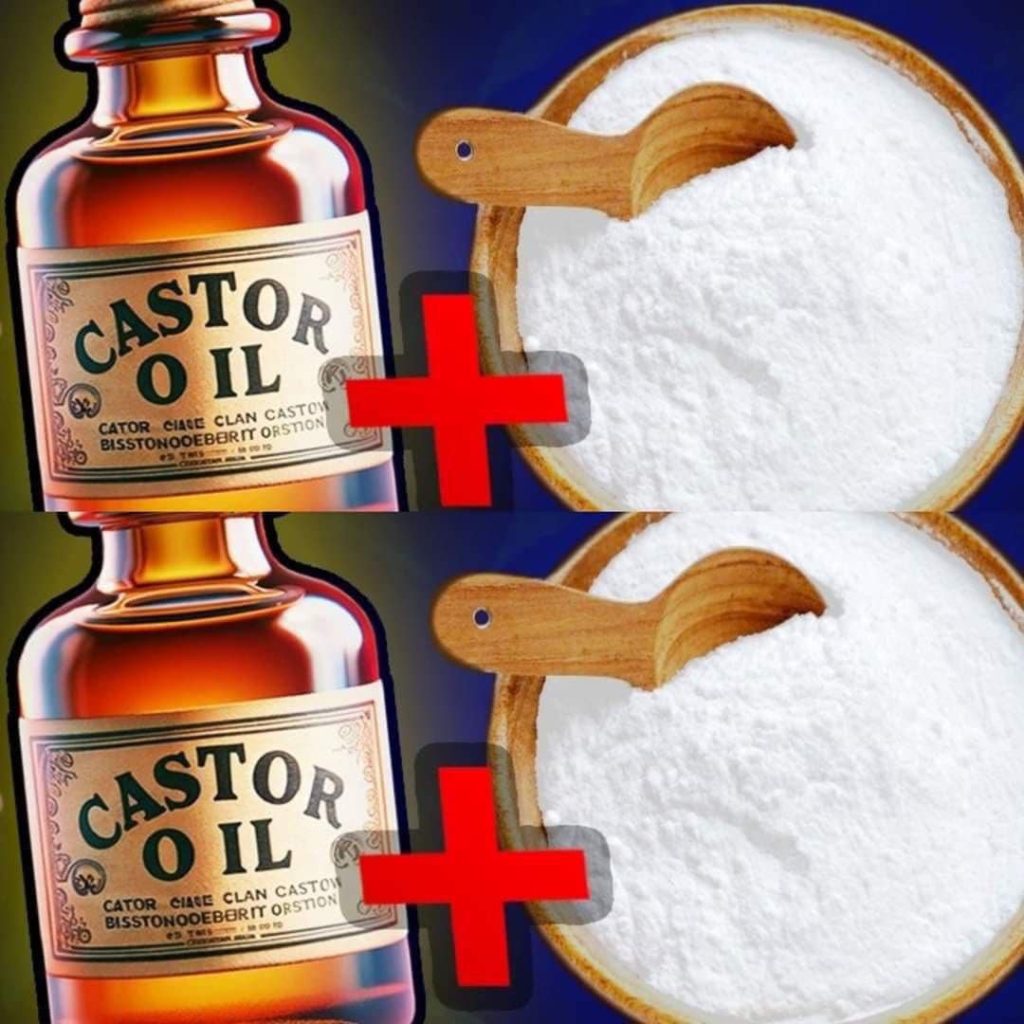Castor oil and baking soda have long been popular as natural remedies for a variety of ailments. While these ingredients do offer certain benefits, it’s important to understand their appropriate uses to avoid potential side effects. Let’s explore how castor oil and baking soda can help with some common health issues and clarify what you should be cautious of when using them.

1. Skin Care: Acne and Inflammation
Castor oil has mild anti-inflammatory properties due to the presence of ricinoleic acid, which can help soothe irritated skin. However, baking soda is not recommended for frequent use on the skin because its high alkalinity can disrupt the skin’s natural pH balance, leading to dryness and irritation. For acne, it’s better to use castor oil sparingly on problem areas, but consult a dermatologist for more effective and proven treatments.
2. Joint Pain and Inflammation Relief
Castor oil has been traditionally used for joint pain due to its anti-inflammatory effects. You can apply it topically to sore joints, but there is no scientific evidence supporting the combination of castor oil with baking soda for this purpose. Using castor oil alone with a warm compress may provide some relief for mild discomfort, but severe or chronic pain should be discussed with a healthcare professional.
3. Digestive Aid
Baking soda can neutralize stomach acid and may provide temporary relief for mild indigestion or acid reflux, but it should be used cautiously and sparingly. Castor oil, on the other hand, is a strong laxative and should not be consumed without medical advice. Combining the two is not recommended for internal use. Always consult a doctor before taking any home remedies for digestive issues.
4. Skin Tags and Warts
While some people claim success with natural remedies like castor oil for skin tags, there is no scientific backing for this practice. For warts and skin tags, it is best to seek advice from a dermatologist who can recommend safe and effective treatments.
5. Minor Cuts and Bruises
Castor oil’s moisturizing and anti-inflammatory properties may support the healing of minor skin irritations, but baking soda should not be applied to open wounds. Keeping the area clean and using approved antiseptics is the safest approach for wound care.
6. Fungal Infections
Castor oil has antifungal properties and may help with mild fungal infections like athlete’s foot. However, baking soda’s effectiveness in treating fungal infections is not well-supported by evidence. For persistent or serious infections, it’s best to use doctor-recommended antifungal treatments.
7. Sunburn Relief
While castor oil can offer some soothing effects for irritated skin, baking soda can further irritate sunburned skin due to its abrasive nature. For sunburn relief, stick to products that contain aloe vera or other ingredients specifically designed for calming sunburned skin.
How to Use Castor Oil and Baking Soda Safely
- For skin care, it’s best to use castor oil alone in small amounts on specific areas. Always patch test first to ensure you don’t have a reaction.
- Baking soda is effective in small doses for neutralizing stomach acid but should not be used regularly due to its alkalinity.
- Internal use of castor oil as a laxative should only be done under medical supervision, as overuse can lead to dehydration and other side effects.
Conclusion
While castor oil and baking soda do have some useful properties, it’s important to use them cautiously and in appropriate contexts. Many of the claims about their combined benefits lack scientific backing, and misuse can lead to irritation or other health issues. Always consult with a healthcare provider before trying new treatments, particularly for skin conditions, joint pain, or digestive issues.
READ MORE
- Start Eating 2 Cloves a Day and See What Will Happen
- Attention, Parents! You Might Want To Hold On To Your Kids’ Baby Teeth

